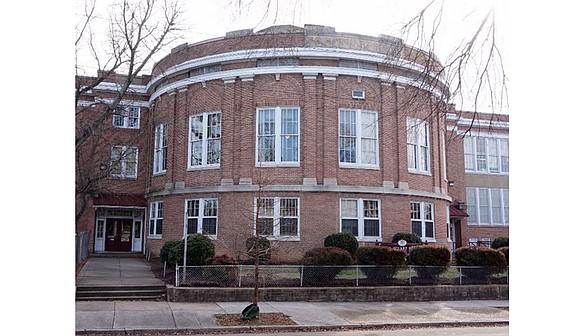School Board gives final approval to $418M spending plan
Jerermy M. Lazarus and Ronald E. Carrington | 6/7/2019, 6 a.m. | Updated on 6/10/2019, 11:12 a.m.
Backed by a $25 million boost in contributions from city taxpayers, the Richmond School Board Tuesday approved spending a record $16,814 for each of the 24,800 students projected to be served in the 2019-20 budget year that begins July 1.
Ranking Richmond among the most expensive school districts in the state, the budgeted cost for public education in the new fiscal year represents an 8.5 percent increase over the previous record of $15,423 budgeted this year for 25,300 students.
That level of spending per student appears to undermine the argument that RPS’ poor showing on everything from on-time graduation to reading achievement is due to underfunding and a lack of resources.
Quite the contrary. The spending package narrowly approved by the School Board on a 5-4 vote is the highest ever for public education in the city — $418 million, including about $398 million in city, state and federal dollars for instruction and operations.
The total also includes $19 million — one of the largest sums in decades — that Mayor Levar M. Stoney and City Council earmarked for school maintenance. It will help RPS take a bite out of the estimated $82 million needed to replace old roofs, air conditioning and heating systems and deal with other maintenance needs in the aging inventory of buildings.
Among the highlights, the approved 2019-20 budget includes sufficient state and city funding to provide Richmond teachers and other eligible school staff with a promised 3 percent pay raise beginning July 1, and to provide a bigger boost for some, including principals, by moving them up the salary scale.
In addition, City Council provided sufficient funds to cover the full cost of the first two years of Superintendent Jason Kamras’ plan to improve academic achievement. That includes funding to launch new remedial reading and math programs. But Mr. Kamras’ success in keeping funding intact for his plan leaves him on the hook to prove his Dreams4RPS approach will work.
“I am filled with gratitude for the School Board, City Council, Mayor Stoney and, most of all, the community for advocating for Richmond Public Schools” and gaining more funding, Mr. Kamras said after the School Board’s vote.
In all, the city’s contribution to school operations alone soared $18 million, including about $6 million to pay for the salary increases.
The spending package became a reality after the board majority adopted amendments crafted by board members Elizabeth Doerr, 1st District, and Jonathan Young, 4th District. Those amendments cleared up an unexpected $1.7 million budget overrun that developed since the initial school budget was approved in February.
The overrun was largely due to an unanticipated $1 million increase in health insurance costs and a proposal from Mr. Kamras to spend $400,000 to provide severance pay to many of the 60 RPS employees losing their jobs as part of a $13 million reduction in spending on central administration. The severance would provide qualifying departing employees with a week’s pay for every two years of service to RPS, although the specific details have not been released.
While at least four School Board members opposed some or all of the Doerr-Young approach, ultimately the budget passed with additional support from board Chair Dawn C. Page, 8th District; Cheryl Burke, 7th District; and Linda Owen, 9th District.
Board member J. Scott Barlow, 2nd District, proposed to tap into the $11.7 million that the council earmarked to cover the second-year cost of Mr. Kamras’ Dreams4RPS initiative, a five-year plan that ultimately could cost $150 million if it continues to be fully funded.
Joining Mr. Barlow in opposing the Doerr-Young plan were Kenya Gibson, 3rd District; Dr. Patrick Sapini, 5th District; and Felicia Cosby, 6th District.
The majority refused to reverse any of the layoffs that were previously approved and cut one position from the School Board clerk’s office as part of balancing the budget. The initial budget plan called for eliminating 74 positions and adding 25 positions, for a net loss of 49. However, at least 13 of the 74 people being laid off have been placed in other jobs.
The five members in the majority also approved a plan that, among other things, reduced a proposed overpayment to help fully fund an RPS early retirement plan; directed the administration to get rid of $100,000 in unused software programs; cut $10,000 to pay for School Board meals; and agreed to generate at least $50,000 to sell back to publishers thousands of brand new, unused textbooks sitting in school closets and storage.
The budget changes will allow RPS to cover a tuition increase for students attending the Appomattox Governor’s School in Petersburg; fully cover transportation and health insurance expenses; and hire a teacher to replace Rodney Robinson, the national teacher of the year, who will be on leave in the coming school year as he travels the country.
Overall, the school system’s total general operating budget will increase about $11.2 million, from $300 million this year to $311.2 million in 2019-20, fueled by city increases. The city is contributing about $174 million this year to operations, up from $168 million last year, plus the $19 million in capital dollars.
The school system’s general fund budget does not include the capital dollars nor $87 million in federal and state contributions for a host of other programs, ranging from pre-school programs such as Head Start and the Virginia Preschool Initiative to adult education.








